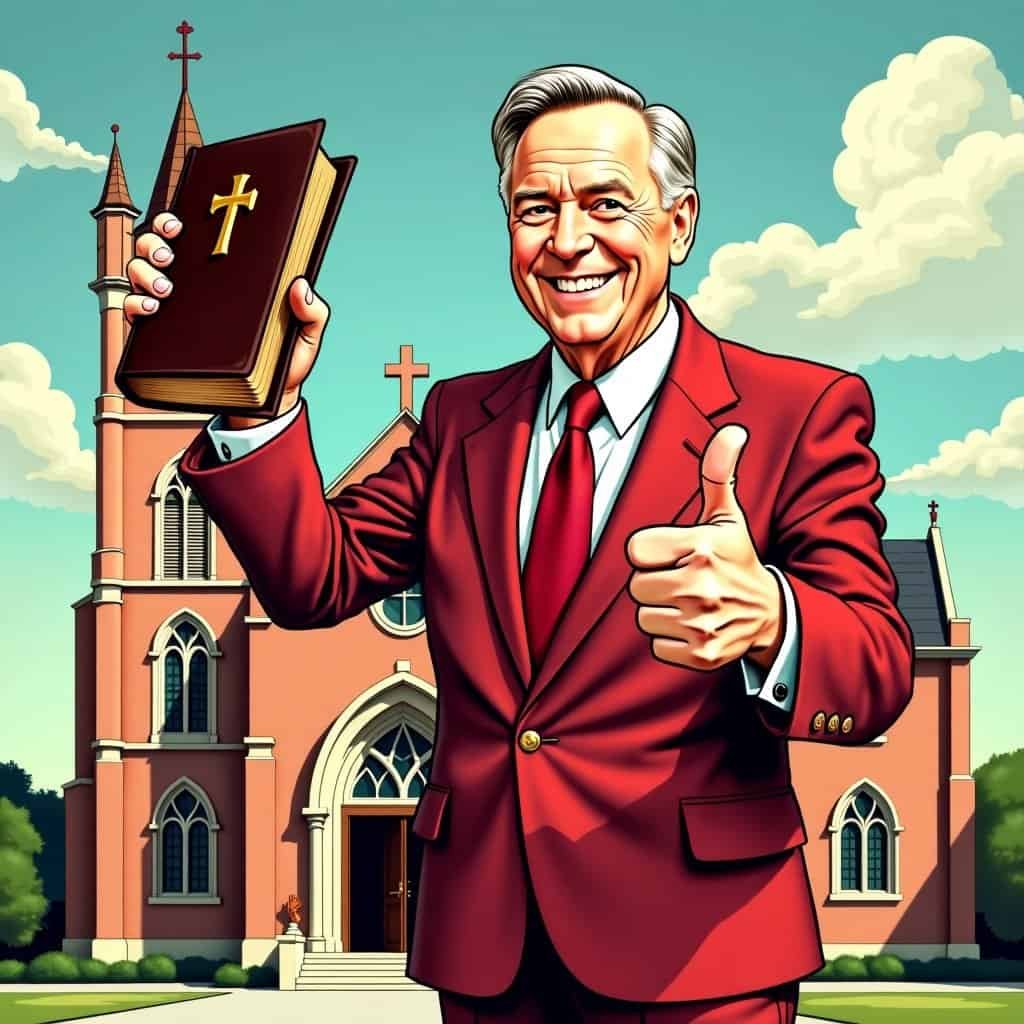Ever heard the one about the conservative who walked into a newsroom and made everyone clutch their pearls? Yep, that would be William F. Buckley Jr., the true maestro of wit and intellect. Now, let’s talk about something close to Buckley’s heart and very relevant today—our defense of religious freedom.
Here’s the scoop. Religious freedom isn’t just another item on the conservative menu; it’s a fundamental ingredient that makes America, well, America. George Washington said, “the Constitution and the laws of our country… require the protection that is due to all those who are under the shadow of their wings.” Pretty poetic, right? And true to form, William F. Buckley Jr. took that idea and ran with it—straight to the editorials, debates, and into the heart of conservative thinking.
Let me break it down—a bit like how Buckley himself would, but with fewer fancy words. The essence of defending religious freedom is straightforward: it’s about making sure everyone can practice their faith (or lack thereof) without the government poking its nose where it doesn’t belong. Conservatives are all about keeping the government in check, after all. It’s not just a preference; it’s a core belief. Picture Uncle Sam barging into your place of worship with a clipboard and a checklist. Creepy, right? That’s why we believe in keeping the government out of our spiritual affairs.
The Dangers of Government Overreach
Liberals, on the other hand, seem to want the federal government to play nanny and referee in our personal matters. They argue for bigger government roles to create uniform standards. But here’s the kicker—doesn’t that sound exactly like the ‘overreach’ we’ve been warned about? Buckley would’ve had a field day picking apart this kind of overreach with his razor-sharp wit.
The left claims it’s about protecting rights, but what they really mean is using federal power to enforce their version of “rights”—which often means squashing the views and values of anyone who disagrees. The progressive view often pushes for what they call ‘social justice’ but forgets that real justice should protect all viewpoints, not just the ones that fit a particular narrative.
Buckley’s Take on Freedom of Speech
“Liberals, it has been said, are generous and broad-minded, but they can be so only when they are dealing with people who agree with them.”
– William F. Buckley Jr.
As Buckley often pointed out, when the state dictates the boundaries of acceptable belief, we all lose. And don’t get me started on safe spaces and cancel culture. Buckley would’ve probably chuckled, sipped his sherry, and launched into a monologue about the absurdity of it all. Because, let’s be honest, if people are afraid to speak their minds, how can we ever create a truly free society?
Education and Values: A Conservative Perspective
Now let’s talk about the elephant in the room—education. Conservatives champion school choice and the right of parents to send their kids to schools that reflect their values, be it religious or otherwise. The left leans heavily on federal mandates and public school systems, which, more often than not, end up sidelining those very values. Imagine sending your child to a school where the curriculum is dictated entirely by bureaucrats who couldn’t spell ‘Jesus’ with a dictionary.
Buckley fought for intellectual diversity. In a world where the ideology of the ruling class seeps into every nook and cranny, the defense of religious freedom is more important than ever. It’s about making room for diverse voices, ensuring our public squares aren’t monopolized by a single narrative.
Law and Constitution: Interpreting with Intent
And what about our laws? Conservatives push for a judicial system that interprets laws based on their original intent. A constitution shouldn’t be twisted to fit contemporary whims. Religious freedom means that people should be allowed to act according to their beliefs, provided they don’t infringe on others. The conservative approach respects both our traditions and our personal liberties, unlike the progressive insistence on reshaping everything to fit their mold.
Buckley stood for a world where people could live out their convictions without fear of coercion. And isn’t that what defending religious freedom is all about? Not just for Christians, Jews, Muslims or Hindus, but for atheists and agnostics too.
Conclusion: The Indispensable Nature of Religious Freedom
So, the next time someone tells you that defending religious freedom is outdated or, worse, some regressive relic, channel a bit of William F. Buckley Jr. Ask them to name a country where government interference in religious affairs led to greater freedom. Spoiler alert: they won’t find one.
Remember, the defense of religious freedom is not just conservative talk; it’s an American keystone. As Buckley might say, it’s essential. Not just important, not just significant, but downright indispensable. And you can bet your bottom dollar he’d have said so with a mischievous twinkle in his eye.
Table of Contents
- The Dangers of Government Overreach
- Education and Values: A Conservative Perspective
- Law and Constitution: Interpreting with Intent
- Conclusion: The Indispensable Nature of Religious Freedom






